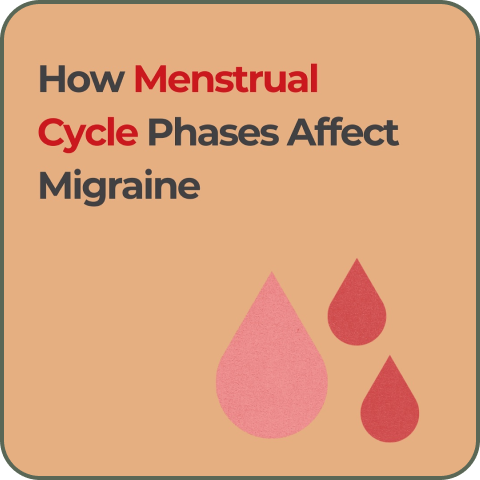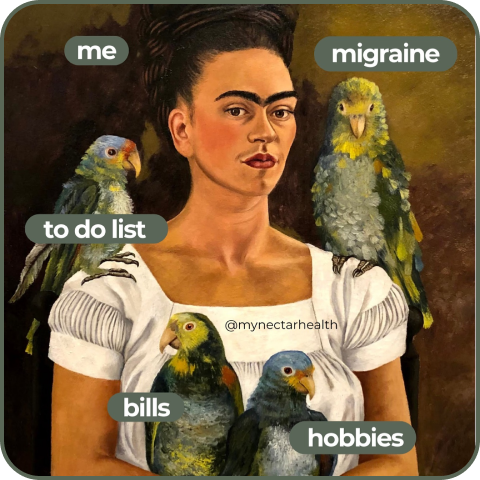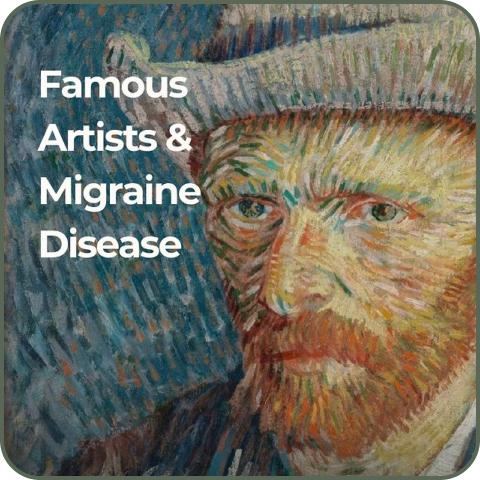Have you ever noticed your migraines getting worse, even though you’re diligently taking your prescribed painkillers? You might unknowingly be caught in a rebound headache cycle, also known as Medication Overuse Headache (MOH). Understanding the signs early can help you break free and find lasting relief. In this article, we’ll explore how your painkillers might be fueling your migraines, how Western and Eastern medicine explain this phenomenon, and natural strategies to restore balance.
1. How to Know If Your Painkillers Are Actually Making Your Migraines Worse
When you reach for painkillers regularly to tame your migraines, it’s easy to believe you’re helping yourself. However, over time, frequent use of NSAIDs, triptans, opioids, or combination medications can backfire, leading to even more intense and frequent headaches.
Common Signs of Rebound Headaches:
- Daily or near-daily headaches, often starting first thing in the morning
- Short-term headache relief, quickly followed by recurring pain
- Increased sensitivity to noise, light, or smells compared to your usual migraines
If you notice these patterns, it’s time to question whether your medications are truly helping or quietly worsening your condition.
2. Western Perspective: The Science Behind Medication Overuse Headaches (MOH)
Western medicine clearly defines Medication Overuse Headache as a condition where frequent painkiller use alters brain chemistry, making you more susceptible to pain rather than less.
How It Happens:
- Brain Chemistry Disruption: Overusing medications like NSAIDs, triptans, and opioids triggers changes in neurotransmitters and pain pathways.
- Pain Processing Alterations: The brain becomes hypersensitive to pain signals, resulting in persistent, harder-to-treat headaches.
A study published in The Lancet Neurology by Dr. Peter Goadsby highlights that up to 50% of chronic headache sufferers experience MOH, especially in headache specialty clinics.
Medications Most Commonly Linked to MOH:
- Simple Analgesics (ibuprofen, acetaminophen) when used over 15 days a month
- Combination Analgesics (caffeine, aspirin, acetaminophen blends like Excedrin)
- Triptans (e.g., sumatriptan, zolmitriptan)
- Opioids (oxycodone, hydrocodone, tramadol)
If your go-to remedy falls into these categories, understanding the risk is crucial to reclaiming control over your migraines.

3. Eastern Perspective: Why More Medications Lead to More Pain
While Western medicine focuses on brain changes, Traditional Chinese Medicine (TCM) looks deeper into how excessive medication use affects the entire body.
According to TCM, medication overuse disrupts the natural balance, particularly harming the digestive system (Spleen and Stomach), the vagus nerve, and the Liver.
Gut-Brain Axis and Pain Sensitivity
- Chronic painkiller use damages gut microbiota, causing inflammation and leaky gut.
- Inflammation sends distress signals to the brain, heightening migraine intensity.
Vagus Nerve Dysregulation
- Excessive medications impair vagus nerve function, which normally helps calm inflammation and modulate pain.
- When Qi (energy) flow is blocked, pain signals become amplified.
Liver Overload and Toxicity
- In TCM, the Liver maintains smooth energy flow; however, painkiller toxicity leads to liver stagnation and heat accumulation.
- This worsens systemic inflammation, creating a vicious cycle of migraines and dependency on medications.
Breaking the Cycle Naturally: TCM’s Approach
Rather than relying on stronger pharmaceuticals or abrupt withdrawal, Traditional Chinese Medicine offers a gentler, holistic pathway to recovery.
How TCM Helps:
✅ Strengthen Digestive Health:
- Healing the gut with anti-inflammatory foods and herbal formulas.
✅ Stimulate the Vagus Nerve Naturally:
- Acupuncture, deep breathing, and gentle herbal therapies activate healing and regulate pain responses.
✅ Support Liver Detoxification:
- Specific acupuncture points and herbal remedies help remove medication buildup and restore energy flow.
By repairing gut integrity, restoring vagus nerve balance, and supporting the liver, the body can naturally reduce migraine frequency without unbearable withdrawal symptoms.
Key Takeaways
- Medication Overuse Headache (MOH) occurs when frequent use of painkillers worsens migraine patterns instead of relieving them.
- Western medicine links MOH to brain chemistry changes and hypersensitivity to pain.
- Common culprits include NSAIDs, triptans, opioids, and combination analgesics.
- Traditional Chinese Medicine explains MOH through disruption of gut-brain communication, vagus nerve dysfunction, and liver congestion.
- Healing naturally through gut health, vagus nerve stimulation, and liver detoxification can break the cycle and restore true migraine relief.
Conclusion
If you find yourself needing painkillers more often—but feeling worse—you could be caught in a rebound headache cycle. Recognizing the signs and understanding both Western and Eastern perspectives empowers you to make smarter choices for your health. Natural healing methods can offer sustainable relief without the devastating side effects of over-medication.
Join the Migraine Heroes Community
💡 New podcast episodes drop every Monday and Wednesday! If you’re a migraine warrior, you’re in the right place.
📲 Download the Migraine Heroes App—the only service worldwide that teaches you how to prevent and stop migraines by adding selective foods to your diet. Start tracking and finally take control of your health!
🔗 www.migraineheroes.com





